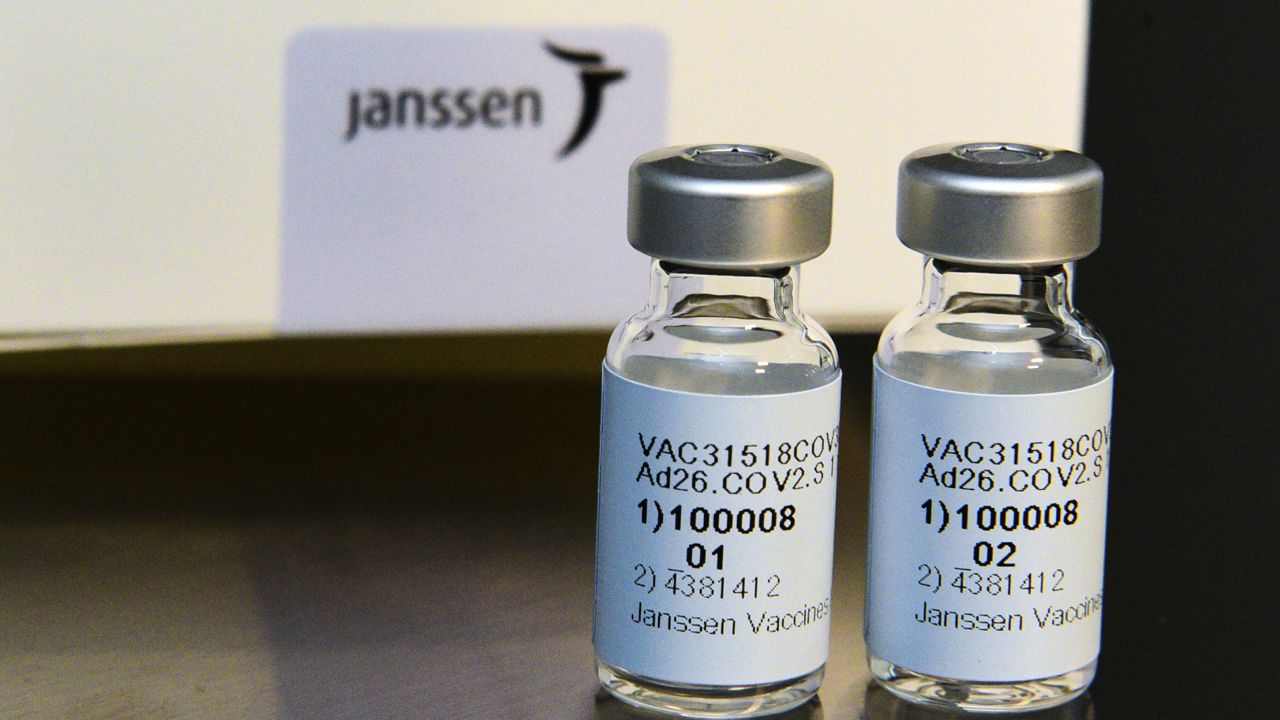Johnson & Johnson on Thursday announced that it has submitted an application to the U.S. Food and Drug Administration (FDA) requesting Emergency Use Authorization (EUA) for its investigational single-dose COVID-19 vaccine candidate.
"Today’s submission for Emergency Use Authorization of our investigational single-shot COVID-19 vaccine is a pivotal step toward reducing the burden of disease for people globally and putting an end to the pandemic," Paul Stoffels, M.D., Vice Chairman of the Executive Committee and Chief Scientific Officer at Johnson & Johnson, said in a statement.
"Upon authorization of our investigational COVID-19 vaccine for emergency use, we are ready to begin shipping," he added. "With our submission to the FDA and our ongoing reviews with other health authorities around the world, we are working with great urgency to make our investigational vaccine available to the public as quickly as possible."
The company announced findings last week that showed that its single-shot vaccine was 66% effective overall at preventing moderate to severe illness, and much more protective – 85% – against the most serious symptoms.
There was some geographic variation. The vaccine worked better in the United States – 72% effective against moderate to severe COVID-19 – compared to 57% in South Africa, where it was up against an easier-to-spread mutated virus.
"Our goal all along has been to create a simple, effective solution for the largest number of people possible, and to have maximum impact to help end the pandemic,” Alex Gorsky, the company's Chairman and Chief Executive Officer said in a statement last week. "We’re proud to have reached this critical milestone and our commitment to address this global health crisis continues with urgency for everyone, everywhere."
"A one-shot vaccine is considered by the World Health Organization to be the best option in pandemic settings, enhancing access, distribution and compliance," Dr. Stoffels noted in that statement. "Eighty-five percent efficacy in preventing severe COVID-19 disease and prevention of COVID-19-related medical interventions will potentially protect hundreds of millions of people from serious and fatal outcomes of COVID-19."
The company expects to supply 100 million doses to the U.S. by June, and expects to have some ready to ship as soon as authorities give the green light.
These are preliminary findings from a study of 44,000 volunteers that isn’t completed yet. Researchers tracked illnesses starting 28 days after vaccination – about the time when, if participants were getting a two-dose variety instead, they would have needed another shot.
After day 28, no one who got vaccinated needed hospitalization or died regardless of whether they were exposed to “regular COVID or these particularly nasty variants,” Mammen said. When the vaccinated did become infected, they had a milder illness.
J&J’s shot uses a cold virus like a Trojan horse to carry the spike gene into the body, where cells make harmless copies of the protein to prime the immune system in case the real virus comes along.
Rival AstraZeneca makes a similar cold virus vaccine that requires two doses. Both the AstraZeneca and J&J vaccines can be stored in a refrigerator, making them easier to ship and to use in developing countries than the frozen kind made by Pfizer and Moderna.
It’s not clear exactly how well the AstraZeneca version, being used in Britain and several other countries, works. Tests in Britain, South Africa and Brazil suggested two doses are about 70% effective although there are questions about how much protection older adults get. An ongoing U.S. study may provide more information.
J&J said its vaccine works consistently in a broad range of people: A third of participants were over age 60, and more than 40% had other illnesses putting them at risk of severe COVID-19, including obesity, diabetes and HIV.
J&J said the vaccine is safe, with reactions similar to other COVID-19 shots such as fever that occur when the immune system is revved up.
While it released few details, the company said there were no serious allergic reactions. But occasionally other COVID-19 vaccines trigger such reactions, which can be reversed if promptly treated – and authorities have warned people to be on the lookout regardless of which type of vaccine is used.
J&J had hedged its bets with a study of a two-dose version of its vaccine, which is still underway.
More COVID-19 vaccines could be on the horizon soon – Novavax announced Thursday that it has begun the "rolling review process" of its COVID-19 vaccine by multiple regulatory agencies, including the FDA.
"The rolling review of our submission by regulatory authorities of non-clinical data and early clinical studies will help expedite the review process and bring us that much closer to delivering a safe and effective vaccine worldwide," Gregory M. Glenn, MD, President of Research and Development, Novavax, said in a statement. "We appreciate the agencies’ confidence in Novavax based on our early data and the collective sense of urgency to ensure speedier access to much-needed COVID-19 vaccination."
Like the J&J vaccine, and unlike its counterparts from Moderna and Pfizer, the Novavax vaccine can be stored at normal refrigeration temperatures, reducing the strain on the ultra-cold chain, the specialized temperature-controlled supply chain that allows for continuous, uninterrupted storage and transportation at sub-zero temperatures.
Novavax claims that their vaccine candidate is the first "to demonstrate clinical efficacy against the original strain of COVID-19 and both of the rapidly emerging variants in the United Kingdom and South Africa."
The Maryland-based company has started review with the FDA, as well as the European Medicines Agency (EMA), U.K. Medicines and Healthcare products Regulatory Agency (MHRA), and Health Canada.
The Associated Press contributed to this report.



